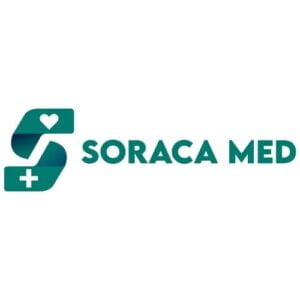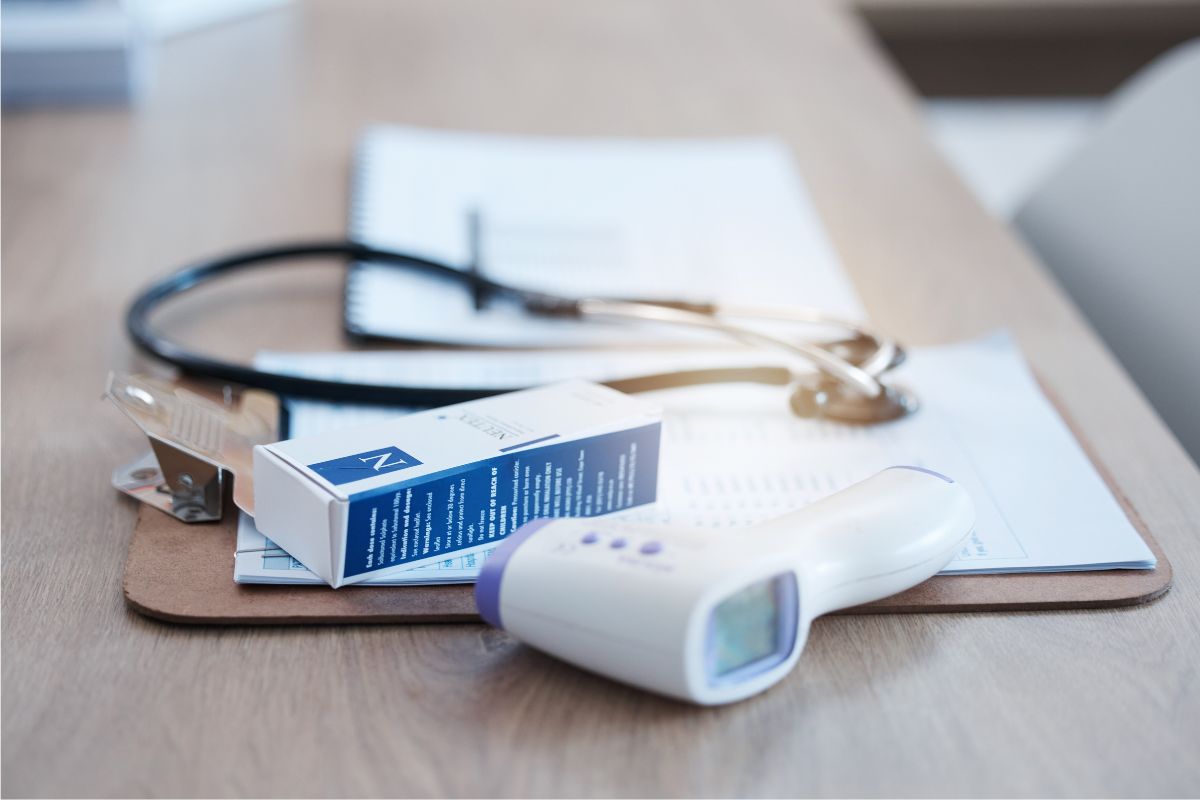What Is Gastric Sleeve
Gastric sleeve surgery, also known as laparoscopic sleeve gastrectomy, is a type of bariatric surgery designed for weight loss. This procedure involves the removal of a significant portion of the stomach, typically around 75-80%, to create a tube-shaped sleeve. The surgery is performed laparoscopically, utilizing small incisions and instruments.
During the procedure, the surgeon makes a small incision in the upper abdomen, removes the left side of the stomach, and reshapes the remaining portion into a sleeve-like structure. This new stomach sleeve restricts the amount of food a person can eat, leading to weight loss.
Gastric sleeve surgery is recommended for individuals who are overweight, typically with a body mass index (BMI) of at least 40, or a BMI of 35 with obesity-related health conditions. It is considered a major surgery, even though it is done laparoscopically.
After the surgery, patients experience a reduced capacity for food intake, as the smaller stomach size makes them feel full with smaller portions. This restriction, coupled with lifestyle changes, helps individuals lose weight. The weight loss can be substantial, with the possibility of shedding all excess weight within one to 1.5 years.
It’s important to note that gastric sleeve surgery is usually recommended for those who have not achieved significant weight loss through traditional methods such as diet and exercise. The procedure is part of a comprehensive approach to weight management and is accompanied by ongoing medical supervision and lifestyle adjustments.
Overall, gastric sleeve surgery offers a potential path to rapid weight loss, but it requires a commitment to long-term lifestyle changes for sustained results.
Cost Of Gastric Sleeve in Turkey
In Turkey, the cost of gastric sleeve surgery ranges from $3,250 to $5,500, offering a more affordable option without compromising quality. Comparatively, in the United States, the same procedure can cost between $9,000 and $27,000, while in the United Kingdom, prices range from $10,470 to $13,000. In Russia, gastric sleeve surgery is priced at $7,128.
The price of gastric sleeve surgery can vary based on factors such as the surgeon’s experience, the quality and quantity of materials used, examination costs, and hospital fees. Private clinics may have higher prices. The average cost of gastric sleeve surgery in Turkey is €3,500.00 as an all-inclusive package, but prices may vary among clinics. It’s important to note that the patient’s condition significantly influences the cost, emphasizing the importance of consulting with an experienced provider.
Below is an overview of gastric sleeve surgery costs in 11 countries, including North America, Europe, and Turkey:
- Turkey: $3,250 to $5,500 (€3,500.00 average)
- United States: $9,000 to $27,000
- United Kingdom: $10,470 to $13,000
- Russia: $7,128
While differences in exchange rates and regional conditions impact prices, the focus should be on achieving healthy results rather than just the monetary aspect of the operation. Choosing Turkey for gastric sleeve surgery provides an affordable and effective option to improve one’s quality of life.
How does Gastric Sleeve Surgery Works?
Gastric sleeve surgery, also known as sleeve gastrectomy, works by reducing the size of the stomach and modifying its anatomy to promote weight loss. Here’s how the procedure works:
Surgical Approach: Gastric sleeve surgery is typically performed laparoscopically, which involves making several small incisions in the abdomen. A laparoscope, a thin tube with a camera, and other specialized surgical instruments are inserted through these incisions to perform the surgery.
Stomach Resection: The surgeon begins by removing a large portion of the stomach, usually about 75-85%. The remaining stomach is reshaped into a sleeve-shaped tube or pouch. This new stomach size is about 15-20% of the original stomach size.
Stapling and Closure: The surgeon uses surgical staplers to divide and seal the stomach along the newly created sleeve. The staples help to close the stomach and create a long, narrow pouch. This stapling technique ensures that the stomach remains sealed and prevents leakage.
Hormonal Changes: The portion of the stomach that is removed during the surgery contains cells that produce the hunger hormone ghrelin. By removing this part of the stomach, the surgery reduces ghrelin production, leading to a decrease in appetite and hunger sensations.
Weight Loss Mechanisms: Gastric sleeve surgery promotes weight loss through two primary mechanisms. First, the reduced stomach size restricts the amount of food that can be consumed at one time. This helps individuals feel full sooner and limits their overall food intake. Second, the hormonal changes resulting from the surgery help to regulate appetite and reduce cravings, supporting long-term weight management.
Post-Operative Care: After the surgery, patients are closely monitored in the hospital for a few days to ensure proper recovery. They are gradually introduced to a specific post-operative diet that progresses from clear liquids to pureed foods and then to solid foods over time. Following the surgery, individuals need to adopt a healthy lifestyle, including regular physical activity and a balanced diet, to achieve and maintain weight loss.
It’s important to note that gastric sleeve surgery is a major surgical procedure and requires careful consideration, medical evaluation, and ongoing support from healthcare professionals to ensure its success and minimize potential risks and complications.
Why is a Sleeve Gastrectomy Done?
A sleeve gastrectomy, also known as a gastric sleeve surgery, is a surgical procedure performed to aid in weight loss. It involves the removal of a large portion of the stomach, leaving behind a smaller, sleeve-shaped stomach. Here are some reasons why a sleeve gastrectomy is done:
Weight loss: The primary goal of a sleeve gastrectomy is to achieve significant and sustained weight loss. By reducing the size of the stomach, the procedure restricts the amount of food that can be consumed at one time. This restriction helps individuals feel full more quickly and limits the amount of calories they can consume, leading to weight loss.
Treatment of obesity-related health conditions: Sleeve gastrectomy is often recommended for individuals with obesity who have associated health conditions such as type 2 diabetes, high blood pressure, sleep apnea, or joint problems. Weight loss achieved through the surgery can improve or even resolve these obesity-related conditions, leading to better overall health and quality of life.
Preoperative weight loss: In some cases, individuals who are extremely obese may undergo a sleeve gastrectomy as a preliminary procedure to achieve significant weight loss before a more complex or high-risk surgery, such as gastric bypass. Losing weight before surgery can reduce surgical risks and improve outcomes.
Long-term weight management: Sleeve gastrectomy is considered a long-term weight management tool. It can help individuals develop healthier eating habits, reduce appetite, and support sustained weight loss over time. The procedure provides an opportunity for individuals to make lifestyle changes and maintain a healthier weight in the long run.
Eligibility for other procedures: Sleeve gastrectomy may be performed as the first stage of a two-step weight loss approach. It can be a standalone procedure or a preparatory step for more complex surgeries like duodenal switch or gastric bypass. The initial weight loss achieved with the sleeve gastrectomy may make subsequent surgeries safer or more effective.
It’s important to note that the decision to undergo a sleeve gastrectomy is based on individual circumstances and should be made in consultation with a qualified healthcare professional. They will evaluate your medical history, weight loss goals, and any associated health conditions to determine the most appropriate weight loss strategy for you.
How to Get Ready for a Sleeve Gastrectomy?
Preparing for a sleeve gastrectomy involves several steps to ensure a safe and successful procedure. Here are some general guidelines on how to get ready for a sleeve gastrectomy:
Consultation with a healthcare professional: The first step is to schedule a consultation with a qualified healthcare professional specializing in bariatric surgery. During this consultation, your medical history, current health status, and weight loss goals will be evaluated. The healthcare professional will explain the procedure, discuss potential risks and benefits, and address any questions or concerns you may have.
Medical evaluation: You will undergo a thorough medical evaluation to assess your overall health and suitability for surgery. This may include blood tests, imaging studies, and other diagnostic tests to evaluate your heart, lungs, liver, and other vital organs. The results will help determine if you are a good candidate for the surgery and if any additional precautions or treatments are necessary.
Lifestyle changes: Leading up to the surgery, your healthcare provider may recommend making certain lifestyle changes to optimize your health and prepare for the procedure. This may include adopting a healthy diet, increasing physical activity, and quitting smoking if applicable. These changes can help improve your overall health, reduce surgical risks, and promote better postoperative outcomes.
Psychological evaluation: Bariatric surgery, including a sleeve gastrectomy, can have significant psychological and emotional implications. It is common to undergo a psychological evaluation to assess your readiness for the procedure, identify any underlying psychological factors that may impact your success, and provide necessary support or counseling.
Preoperative education: Your healthcare provider will provide you with detailed information about the sleeve gastrectomy procedure, its potential risks and benefits, and what to expect before, during, and after the surgery. This education will help you understand the process and make informed decisions about your treatment.
Preoperative instructions: Your healthcare provider will provide specific preoperative instructions to follow in the days leading up to your surgery. This may include fasting guidelines, restrictions on medications or supplements, and instructions regarding preoperative cleansing of the bowel, if necessary.
Support system: Building a support system is essential for successful weight loss and recovery after surgery. Reach out to family, friends, or support groups who can provide emotional support, encouragement, and assistance during your weight loss journey.
Remember, the specific preparation guidelines may vary based on your individual circumstances and the practices of your healthcare provider. It’s important to follow your healthcare provider’s instructions closely and communicate any concerns or questions you may have.
Recovery Timeline From the Surgery
The recovery timeline after a sleeve gastrectomy can vary from person to person. Here is a general overview of the different stages of recovery following the surgery:
Hospital stay: After the sleeve gastrectomy, you will typically stay in the hospital for one to three days, depending on your progress and the specific protocols of your healthcare provider. During this time, you will be closely monitored for any immediate postoperative complications and receive pain management and fluid intake as needed.
Initial recovery period (first few weeks): The first few weeks following the surgery are focused on allowing your body to heal and adjusting to the changes in your digestive system. During this time, you will gradually transition from a liquid diet to a pureed or soft food diet as recommended by your healthcare provider. It’s crucial to follow the specific dietary guidelines provided to you to ensure proper healing and minimize the risk of complications.
Follow-up appointments: You will have scheduled follow-up appointments with your healthcare provider to monitor your progress, assess healing, and make any necessary adjustments to your postoperative care plan. These appointments may include evaluations of weight loss, nutritional counseling, and discussions about lifestyle modifications.
Dietary progression: Over time, you will progress to a regular solid food diet as directed by your healthcare provider. It’s important to adhere to portion control guidelines and make healthy food choices to support your weight loss goals and overall health.
Physical activity and exercise: Your healthcare provider will provide guidance on when and how to resume physical activity and exercise after surgery. Regular physical activity is important for overall health, weight management, and improving strength and fitness levels. It’s essential to start slowly and gradually increase the intensity and duration of your activities as advised.
Long-term follow-up: Weight loss surgery, including sleeve gastrectomy, is a lifelong commitment. Long-term follow-up care is crucial to monitor your progress, address any concerns or complications, and provide ongoing support for your weight loss journey. Your healthcare provider will determine the frequency of follow-up appointments based on your individual needs and progress.
It’s important to note that the recovery timeline and individual experiences can vary. It’s essential to follow your healthcare provider’s specific postoperative instructions, attend follow-up appointments, and communicate any concerns or questions you may have during your recovery period.
Remember, this is a general timeline, and individual experiences may differ. Always consult with your healthcare provider for personalized information and guidance based on your specific circumstances.
What Is The Complications in Gastric Sleeve?
Gastric sleeve surgery, also known as sleeve gastrectomy, is a type of bariatric surgery that involves removing a large portion of the stomach to create a smaller, sleeve-shaped stomach. While gastric sleeve surgery is generally considered safe and effective, there are potential complications that can occur. These may include:
Leakage: One of the primary concerns following gastric sleeve surgery is the risk of leakage at the staple line. This can lead to infection, abscess formation, or other complications. Surgeons employ various techniques and measures to minimize the risk of leaks, such as reinforcing the staple line or using surgical sealants.
Strictures: Some individuals may develop narrowing or strictures in the remaining stomach or at the connection between the stomach and the small intestine. This can cause difficulties in swallowing or the passage of food and may require endoscopic dilation or surgical intervention to address.
Bleeding: Excessive bleeding during or after surgery is a potential complication. Surgeons take precautions to control bleeding during the procedure, but there is still a small risk of post-operative bleeding that may require intervention.
Infection: Infection at the incision site or in the abdominal cavity is a possible complication. Strict sterile techniques, antibiotic prophylaxis, and appropriate wound care are employed to minimize the risk of infection.
Blood Clots: Bariatric surgery increases the risk of blood clots forming in the legs (deep vein thrombosis) or traveling to the lungs (pulmonary embolism). Measures such as early mobilization, compression stockings, and blood-thinning medications are used to reduce this risk.
Gastroesophageal Reflux Disease (GERD): Some individuals may experience the development or worsening of GERD symptoms after gastric sleeve surgery. This can include heartburn, regurgitation, or chest discomfort. Medications or additional interventions may be necessary to manage GERD symptoms.
Nutritional Deficiencies: Gastric sleeve surgery can affect nutrient absorption, leading to potential deficiencies in vitamins (such as B12, D, and folate), minerals (such as iron and calcium), and protein. Lifelong supplementation and regular monitoring of nutritional levels are necessary to prevent deficiencies.
It’s important to note that while these complications are possible, they do not occur in every individual. The risk of complications can vary depending on factors such as the individual’s overall health, adherence to post-operative guidelines, and the surgeon’s experience and skill. Prior to undergoing gastric sleeve surgery, thorough discussions with the healthcare team, including the surgeon and bariatric specialists, can help address concerns, outline potential risks, and provide guidance for a safe and successful surgical experience.
Who are eligible for gastric sleeve surgery?
Eligibility for gastric sleeve surgery, also known as sleeve gastrectomy, is determined on a case-by-case basis by a qualified healthcare professional specializing in bariatric surgery. While specific criteria may vary among healthcare providers and regions, here are some general factors that are typically considered when determining eligibility for gastric sleeve surgery:
Body Mass Index (BMI): Gastric sleeve surgery is generally recommended for individuals with a BMI of 40 or higher, which is classified as severe or morbid obesity. It may also be considered for individuals with a BMI between 35 and 40 who have significant obesity-related health conditions, such as diabetes, high blood pressure, or sleep apnea.
Failed weight loss attempts: Candidates for gastric sleeve surgery often have a history of unsuccessful attempts at losing weight through diet and exercise or other non-surgical weight loss methods. The surgery may be recommended for individuals who have not achieved long-term weight loss or who have experienced weight regain after previous weight loss efforts.
Obesity-related health conditions: Individuals with obesity-related health conditions, such as type 2 diabetes, hypertension, sleep apnea, or joint problems, may be considered eligible for gastric sleeve surgery. The surgery can help improve or resolve these conditions in many cases.
Physical and psychological health: Candidates for gastric sleeve surgery should be in generally good physical and psychological health to undergo the procedure and tolerate the changes in their digestive system. A thorough medical evaluation, including assessments of heart, lung, and liver function, is typically performed to ensure that the surgery can be safely conducted.
Commitment to lifestyle changes: Gastric sleeve surgery is not a standalone solution for weight loss. Candidates must demonstrate a willingness and commitment to making long-term lifestyle changes, including adopting a healthy diet, engaging in regular physical activity, and attending follow-up appointments for monitoring and support.
It’s important to note that these are general guidelines, and the eligibility criteria may vary based on individual circumstances, the practices of healthcare providers, and the specific guidelines in your region. The final determination of eligibility for gastric sleeve surgery is made by a qualified healthcare professional following a comprehensive evaluation and discussion of the potential risks and benefits.
If you’re considering gastric sleeve surgery, it’s best to consult with a healthcare professional specializing in bariatric surgery. They will evaluate your individual situation, discuss the eligibility criteria, and provide personalized guidance based on your specific needs and goals.
Who cannot undergo gastric sleeve surgery?
While gastric sleeve surgery, also known as sleeve gastrectomy, can be an effective weight loss option for many individuals, it may not be suitable or recommended for everyone. Here are some factors that may make a person ineligible for gastric sleeve surgery:
Insufficient Body Mass Index (BMI): Gastric sleeve surgery is generally not recommended for individuals with a BMI below a certain threshold. The specific cutoff may vary among healthcare providers, but it is typically around a BMI of 35 or lower. Surgery is usually reserved for individuals with higher BMIs or those who have significant obesity-related health conditions.
Medical contraindications: Certain medical conditions may make gastric sleeve surgery too risky or not feasible. Examples include severe heart or lung disease, uncontrolled high blood pressure, active substance abuse, significant liver disease, bleeding disorders, or a history of multiple abdominal surgeries that may complicate the procedure.
Psychological or psychiatric issues: Candidates for gastric sleeve surgery should be in generally good psychological health. Individuals with severe untreated mental health conditions, including active substance abuse, severe depression, or severe eating disorders, may not be suitable candidates for surgery. Psychological evaluation is often conducted to assess a person’s readiness and mental well-being.
Inability to make lifestyle changes: Gastric sleeve surgery requires a commitment to making significant lifestyle changes, including adopting a healthy diet, engaging in regular physical activity, and attending follow-up appointments. Individuals who are unwilling or unable to make these changes may not be good candidates for the procedure.
Unrealistic expectations: It’s essential that candidates for gastric sleeve surgery have realistic expectations regarding weight loss and the outcomes of the procedure. Understanding that surgery is a tool that requires ongoing commitment and lifestyle changes is crucial for success. Individuals seeking surgery solely for cosmetic reasons or with unrealistic weight loss goals may not be suitable candidates.
It’s important to note that the decision regarding eligibility for gastric sleeve surgery is made on an individual basis by a qualified healthcare professional specializing in bariatric surgery. They will evaluate your specific circumstances, medical history, and potential risks and benefits to determine the most appropriate weight loss strategy for you.
If you’re considering gastric sleeve surgery, it’s best to consult with a healthcare professional specializing in bariatric surgery. They will evaluate your individual situation, discuss the eligibility criteria, and provide personalized guidance based on your specific needs and goals.
Should I stop the drugs before sleeve gastrectomy?
It is important to consult with your healthcare provider regarding any medications you are taking before undergoing a sleeve gastrectomy or any surgical procedure. The decision to stop or adjust medications will depend on several factors, including the type of medication, your underlying medical conditions, and the specific guidelines of your healthcare provider.
In general, certain medications may need to be temporarily stopped or adjusted before surgery to minimize potential risks and ensure a safe procedure. Medications that may be discussed include:
Blood-thinning medications: Some blood-thinning medications, such as aspirin, clopidogrel, or warfarin, may increase the risk of bleeding during surgery. Your healthcare provider will provide specific instructions on when to stop these medications before surgery to minimize the risk of excessive bleeding.
Nonsteroidal anti-inflammatory drugs (NSAIDs): NSAIDs, such as ibuprofen or naproxen, can also increase the risk of bleeding. Your healthcare provider may recommend discontinuing these medications before surgery.
Herbal supplements and alternative medicines: Certain herbal supplements and alternative medicines can interact with anesthesia or increase the risk of bleeding. It is important to disclose all the medications, supplements, or alternative therapies you are taking to your healthcare provider to determine if any adjustments are necessary.
Prescription medications: Your healthcare provider will review all your prescription medications to assess their potential impact on the surgery. They may provide guidance on whether any medications need to be temporarily stopped or adjusted before the procedure.
It is crucial to follow the specific instructions provided by your healthcare provider regarding medications before surgery. Do not stop or adjust any medications without consulting your healthcare provider first, as abruptly stopping certain medications can have adverse effects.
During your preoperative evaluation and consultation, make sure to inform your healthcare provider about all the medications you are taking, including prescription medications, over-the-counter drugs, and any supplements or herbal remedies. They will provide you with personalized guidance based on your medical history, the specific medications you are taking, and the surgical plan.
Always consult with your healthcare provider for personalized advice and recommendations regarding medications before any surgical procedure. They will have the best understanding of your medical history and can provide you with the most appropriate guidance for your specific
situation.















